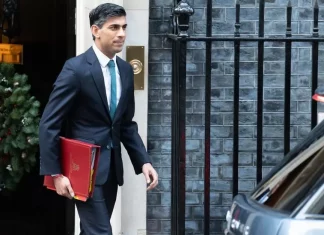There seems to be a lack of historical perspective concerning the division of opinion in the country today. The great & the good argue, no doubt for their own benefit, it is unprecedented. The Archbishop of Canterbury, surely the greatest & ‘goodest’ of them all would have you believe it so.
Yet this is nonsense to the political historian. Britain has been divided on different issues for over eight hundred years. Some historians might suggest longer, or what constitutes Britain in retrospect but that is not my point in this article.
Let us not go back to mediaeval civil wars, King Stephen & Matilda, or even the Wars of the Roses as they don’t shed much light on present day problems. I do however wish to return to the three civil wars of the seventeenth century, but in a while.
Great Britain has been ‘split’ or ‘divided’ quite definitively for 250 years. Tories & Whigs, Tories & Liberals, Conservative & Labour.
A mix of views but generalising Gladstonian liberalism against conservatism & until recently conservatism against socialism (we are all socialists now) Red & Blue if you will. Two political choices, it is the same in America.
The electorate is usually divided roughly down the middle in terms of voting numbers but the party political system gives a first past the post winner, that winner takes all until the next election.
There has not been a challenge to this political accommodation in the recent past. However in the US this has been challenged by what Americans call Deep State. This article is not about America so I will park that pro tem.
What therefore is different today? I would argue everything yet nothing.
In the last few years there has been a groundswell of popular opinion that after nearly fifty years of the European Union experiment the majority of British people want to return to their Constitutional Monarchy, parliamentary democracy & old system of the primacy of English law.
I make no case for or against here I just outline the facts. The electorate tried the political experiment after endorsing membership in a referendum. Personally I too endorsed it.
Yet growing discontent was evident & understanding the European Union’s commitment to an ever deeper integration, with compulsory membership of the euro for all, a European Army (details of which are now emerging) a centrally run immigration policy & harmonised tax system. A referendum was needed to give a British government a mandate to support it. It was a calculated risk.
Parliament decided to give the vote to the electorate directly in a referendum. Given the massive support for leaving with both conservative & labour supporters a Remain vote would endorse the next big step to a Federal Europe. Not an ignoble ambition in point of fact for those who want it. No need to hide it. A genuine belief. But the debate degraded to trade & immigration, with very little constitutional argument.
The referendum was won by Leave. The astonishment was palpable. The whole government & opposition machine had ground into action. A £9 million campaign letter was sent to every family in the land urging remain. The President of the United States was wheeled in TV & radio (Europhile DNA in spades) had mobilised. There followed a general election where both main parties claimed in their manifestos they would abide by the will of the people.
Job done. Leaving the EU was a done deal therefore. It became overnight a non-party political issue.
Yet what has happened? The House of Commons, the House of Lords & the civil service are Remainers.
The dream of a Federal Europe runs very deep, almost a religious fervour. The negotiations are clearly being sabotaged, the debate clings to trade, yet 95% of world trade is under WTO rules. British negotiators have no experience of trade! The one thing an Oxford graduate hates is commerce, it is so vulgar, he or she heads for politics or bureaucracy. The implication that this would be a disaster whose trade imbalance is £80 billion is risible. No ordinary man or woman in the pub believes a word of it. It is a nonsense played out by politicians & MSM.
I promised to return to the civil wars of the seventeenth century, ‘by the sword divided’. A recent civil war re-enactment group entertained & informed us in my village last week, it prompted a return to my bookshelves to see if history could teach us anything, it usually can.
The nation from 1640 to 1600 was divided indeed, with Englishman prepared to fight Englishmen, sometimes even inter family.
Scots, Welsh & Irish weighed in at heavy cost, dark times indeed.
Were there similarities? In part yes.
Simplistically the Royalist cause endorsed the divine right of kings, a system of government where parliament had no role. On the other a republican cause, reluctant initially but the bitterness grew. After much bloodshed the Republican cause prevailed. It didn’t last. The Restoration came & the beginnings of the modern parliamentary constitutional monarchy came about.
A further hiccup, the Glorious Revolution shifted another idiot Stuart off the throne, the Bill of Rights & Tolerance Act followed & put Britain on the path to a prosperous democratic & indeed great nation.
We strayed from that path with the vote to remain in the European Union in 1975, the country was at a low ebb, that experiment is over, as was our flirtation with republicanism all those years ago.
Blood had to be shed in the civil war, largely owing to the stupid intractability of Charles1, let’s hope that stupid intractability is not mirrored by the political class, civil service & House of Lords.
They must deliver their promise set in stone in their manifestos.






